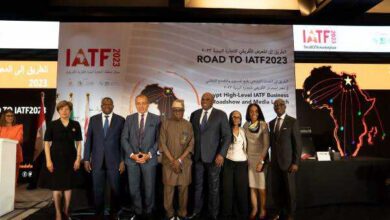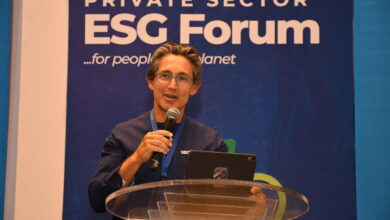
- Insist oil giants must clean up environmental mess before divesting
Environmental activists and climate justice groups from Nigeria, Togo and South Africa have faulted International Oil Companies (IOCs) over the misinterpretation of divestments in Africa which they say, does not follow laid down procedures of divestments in accordance with international best practices.
The activists made the assertion at a Webinar on IOCs divestment in Africa organised by the Environmental Rights Action/Friends of the Earth Nigeria (ERA/FoEN) as part of activities to herald the Africa Peoples Counter COP (APCC2023).
In his presentation, ERA/FoEN Executive Director of ERA/FoEN, Barrister Chima Williams, said the virtual meeting was targeted at building synergy among groups in Africa with a view to challenging the divestment processes like ERA/FoEN has been doing in Nigeria where it has engaged communities, CSOs and media practitioners to stop the divestment processes.
With particular reference to Nigeria, Williams pointed out that the IOCs were divesting from onshore to shallow waters and deep offshore where their activities cannot be easily monitored by environmental groups, insisting that they were doing so to evade responsibility for the oil spills, flares and other negative environment impacts on the host communities.
“The way the IOCs are implementing the divestment is very wrong and very bad. Divestments must follow laid-down global principles and procedures. The IOCs are not at liberty to divest until they restore the environment and clean up the mess they created before divesting. This is our simple campaign.
“We have spoken up against Oando Plc’s acquisition of Nigeria Agip Oil Company’s (NAOC) assets. We maintained that Oando does not have the capacity and that due diligence was not carried out and the Nigeria National Petroleum Company Limited (NNPCL) even denied the move and recanted soon after.
“By and large, Oando has been alerted to the dangers, risks, concerns and impending litigations against them on the implications of acquiring 100 percent of Agip assets,” he stated.
Williams also pointed out that the Nigeria campaign on Deepening Conversations for Review of International IOCs Divestment Processes and the Nigeria Energy Transition Plan under the Energy Transition Fund (ETF) seeks to escalate growing agitations for policy-level intervention to address the anomalies in the Niger Delta, particularly IOCs failure to take responsibility for the cost of oil in impacted communities.
He further explained that the campaign on divestment, which started in 2021, has strengthened civil society and there is now a growing advocacy for policy-level laws to halt new oil exploration activities and new oil fields.
According to him, a major legal precedent achieved stopping Shell and Exxon Mobil from divesting onshore holdings pending a suit instituted by impacted communities in Bayelsa State in the heart of the Niger Delta region.
Read Also: Report exposes impacts of oil corporations on frontline communities in African countries
Also speaking, ERA/FoEN Programme Manager and Project Coordinator, Climate Justice and Energy, Friends of the Earth Africa (FoEA), Ubrei-Joe Mariere, explained that there are about 20 processes that companies must fulfil for a divestment process can be deemed complete, including transition planning, due diligence and legal consultations, among others.
Mariere, however, noted that the processes are not followed by Shell, TotalEnergies and Eni in their divestment plans in the Niger Delta, maintaining that the IOCs were deceiving the government and members of the public by claiming that they were divesting to curtail global warming and climate change.
He revealed that the Leave Oil in the Soil Campaign championed by ERA/FoEN and the global climate justice federation was a strategy to put pressure on governments to pull resources away from dirty energy and invest instead in clean energy or renewable energy projects.
On her part, Senior Manager of Climate Energy and Justice Campaign, Groundwork South Africa, Yegeshi Moodley, said South Africa has had its fair share of misrepresentation of divestment even though Section 24 of the country’s constitution affirms the right to the environment.
She noted that companies like TotalEnergies, Renergen and Rhino Oil and Gas were at the forefront of fossil fuel projects that local communities are now resisting.
Moodley stressed the fact that most of the mineral resources belt in South Africa including the offshore have been partitioned and carved up by IOCs encouraged and protected by the South African governments, adding however that farmers and community people had been strategically challenging.
Similarly, Executive Director, Centre for Environmental Justice in Togo, Kwami Kpondzo, pointed out that the divestment engagements in Togo have a particular uniqueness because that country’s government believes that the energy mix must include fossil fuels.
He added that fishermen and communities around where extractive activities take place are now at the forefront of demands that the government remain committed only to transiting to clean and affordable renewable energy sources.
The Webinar was attended by climate activists, grassroots communities and media representatives across the African continent.
Follow The Trumpet on all our social media platforms for more updates:




